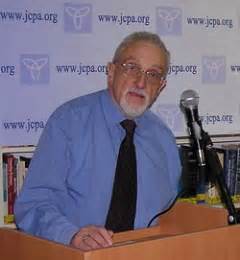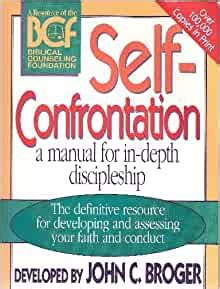A Quote by Peter Kreeft
If the churches ever did reunite, it would have to be into something that was as sacramental and liturgical and authoritative as the Roman Catholic Church and as protesting against abuses and as much focused on the individual in his direct relationship with Christ as the Evangelicals, as charismatic as the Pentecostals, as missionary-minded as the old mainline denominations, as focused on holiness as the Methodists or the Quakers, as committed to the social aspects of the Gospel as the social activists, as Biblical as fundamentalists, and as mystical as the Eastern Orthodox.
Quote Topics
Activists
Against
Aspects
Authoritative
Biblical
Catholic
Catholic Church
Charismatic
Christ
Church
Churches
Committed
Denominations
Did
Direct
Eastern
Evangelicals
Ever
Focused
Gospel
His
Holiness
Individual
Methodists
Minded
Missionary
Much
Mystical
Old
Orthodox
Protesting
Relationship
Roman
Roman Catholic
Roman Catholic Church
Social
Something
Would
Related Quotes
We have to separate here the church in its broad sense. We have Catholics, Protestants, Eastern Orthodox churches. The Catholic church is a corporation like a chief executive. A fairly homogenous operation. Today its attitude toward anti-Semitism is much more severe than it's ever been. The Catholic Church today is much less the problem than the other groups.
The usual marriage in traditional cultures was arranged for by the families. It wasn't a person-to-person decision at all. . . . In the Middle Ages, that was the kind of marriage that was sanctified by the Church. And so the troubadour idea of real person-to-person Amor was very dangerous. . . . It is in direct contradiction to the way of the Church. The word AMOR spelt backwards is ROMA, the Roman Catholic Church, which was justifying marriages that were simply political and social in their character. And so came this movement validating individual choice, what I call following your bliss.
Protestants are the more segmented group. Mainline churches - you have problems in the U.S., Europe, the Scottish Church, the Dutch Protestant Church, the state church in Norway. The evangelicals have been pro Israel, but a major effort is to bring them in on the Palestinian side. A huge problem and the problems are rising.
There is not one particular moment that can account for the shift from the social issue concerns of 19th-century evangelicals into the state of American evangelicalism today. Some historical moments are telling. The rise of biblical criticism in the 19th century forced evangelicals to make choices about what they believed about the gospel.
Do we claim to believe in God? He's a missionary God. You tell me you're committed to Christ. He's a missionary Christ. Are you filled with the Holy Spirit? He's a missionary Spirit. Do you belong to the church? It's a missionary society. And do you hope to go to heaven when you die? It's a heaven into which the fruits of world mission have been and will be gathered.
The Reformed Church was identified with the old all-white government of South Africa and its apartheid policy. The Roman Catholic Church was closely identified with the Franco and Salazar dictatorships in Spain and Portugal. . . . More recently, . . . the Serbian Orthodox Church has come to be identified with the policies of Serbia (Yugoslavia).
The differing opinions regarding the gospel are often categorized as different variations of the same truth, or coming at the same truth from different angles, or even emphasizing different aspects of the same truth. This fails to recognize that the different 'variations' are often altogether different gospels. The Reformed gospel is completely different from the Roman Catholic gospel; a faith-based gospel is in direct contradiction to a works-based gospel; a truly evangelical gospel stands in contrast to an ultracharismatic gospel.
The Most Holy Roman Church firmly believes, professes and preaches that none of those existing outside the Catholic Church, not only pagans, also Jews, heretics, and schismatics can ever be partakers of eternal life, but that they are to go into the eternal fire 'which was prepared for the devil and his angels' (Mt. 25:41) unless before death they are joined with Her... No one, let his almsgiving be as great as it may, no one, even if he pour out his blood for the Name of Christ can be saved unless they abide within the bosom and unity of the Catholic Church.
If we look at it more from a philosophical standpoint, these foundations of atheism and secular humanism believe that you are your own God. That leads us to something that unfortunately has crept into many churches across America, and it is what I call the Social Gospel. The social gospel, that could creep into something that is called Liberation Theology, which is a mixture of leftist, pseudo-Christianity with Marxism.
Often the Jesus-focused churches are leaning towards a 'social gospel' interpretation of the kingdom, and the 'Paul' churches are talking about being saved from sin and going to heaven. But when we understand both Jesus and Paul in their historical contexts within the first-century Jewish world, the issues become both more complex and ultimately (I believe) more clear.
God intends and expects marriage to be a lifetime commitment between a man and a woman, based on the principles of biblical love. The relationship between Jesus Christ and His church is the supreme example of the committed love that a husband and wife are to follow in their relationship with each other.
I'm a New Testament Christian. I reject and throw out titles. I'm not a fundamentalist, though I'm fundamental in all of my doctrine. I'm not an evangelical, because that means that I exclude the Catholics and main-liners, and Orthodox. I'm a believer who loves Jesus and I work with everybody else whatever their denomination; Catholic, Orthodox, charismatic, main line, evangelicals, anyone who loves Jesus.




































